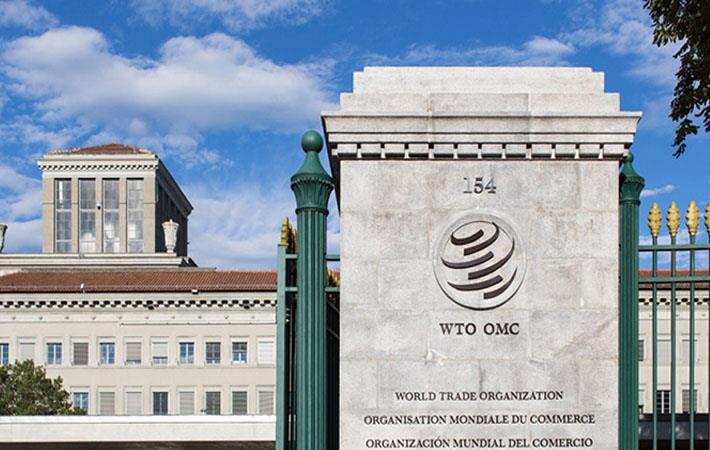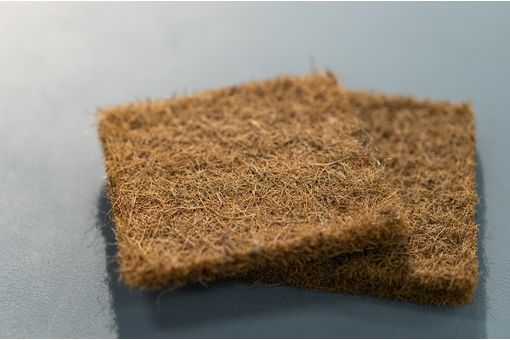Interviews
WTO sees proof of G20 steps towards open trade policies
01 Jul '20
3 min read

Pic: WTO
Tariff increases, import bans, stricter customs procedures, export duties and other such measures introduced between mid-October last year and mid May this year affected 2.8 per cent of G20 trade, according to a World Trade Organisation (WTO) report on G-20 trade measures, which found evidence of steps towards more open trade policies across sectors, including goods, services and intellectual property.
The stock of import-restrictive measures implemented since 2009 and still in force continues to grow—now affecting an estimated 10.3 per cent of G20 imports ($1.6 trillion), the report said.
However, the WTO report also found evidence of steps towards more open trade policies across sectors, including goods, services and intellectual property.
New import-facilitating measures, such as tariff reductions, the elimination of import taxes and the reduction of export duties, covered an estimated $735.9 billion worth of trade, excluding policies relating to the pandemic.
This figure is the highest recorded since 2014, and is sharply higher than the $92.6 billion trade coverage of import-facilitating measures recorded during the previous monitoring period from May to October 2019.
The initial COVID-19 outbreak saw many governments introduce trade restrictions, over 90 per cent of them export bans on medical products, such as surgical masks, gloves, medicine and disinfectant. Since then, G20 economies have repealed 36 per cent of these restrictions.
They have also lowered barriers to imports of many pandemic-related products. As of mid-May 2020, 65 of the 93 pandemic-related trade measures implemented during the monitoring period—or about 70 per cent—were of a trade-facilitating nature. The remaining 28 measures, 30 per cent of the total, could be considered to have trade-restrictive effects.
“Historically high levels of trade-restrictive measures remain a source of concern, all the more so at a time when international trade and investment will be critical to rebuild economies, businesses and livelihoods around the world. That said, we also see some encouraging indications: not since 2014 have import-facilitating measures implemented during a single monitoring period covered more trade,” WTO director general Roberto Azevêdo said commenting on the report.
The report—the 23rd in a series dating back to the global financial crisis in 2009—was the first to be prepared against the backdrop of the COVID-19 pandemic. The full impact of the viral outbreak and associated lockdown measures is not yet reflected in trade statistics, but according to WTO data published on 22 June, world trade fell sharply in the first half of the year.
Overall, G20 economies implemented 154 new trade and trade-related measures during the review period, of which 95 were of a trade-facilitating nature and 59 were trade-restrictive. Sixty per cent of these measures (93 in total) were linked to the COVID-19 pandemic.
Of these 93 measures, 65 facilitated trade while 28 restricted trade. In the early stages of the pandemic, several of the measures introduced by G20 economies restricted the free flow of trade, principally for exports. But as of mid-May 2020, 70 per cent of all COVID-19 related measures were trade-facilitating.
Of the pandemic-related trade restrictions recorded, export bans accounted for more than 90 per cent. Around 36 per cent of the COVID-19 specific trade restrictions implemented by G20 economies had been repealed by mid-May.
Excluding COVID-19-related measures, G20 economies implemented 61 trade and trade-related measures during the review period. These included 30 new measures aimed at facilitating trade during the review period.
The stock of import-restrictive measures implemented since 2009 and still in force continues to grow—now affecting an estimated 10.3 per cent of G20 imports ($1.6 trillion), the report said.
However, the WTO report also found evidence of steps towards more open trade policies across sectors, including goods, services and intellectual property.
New import-facilitating measures, such as tariff reductions, the elimination of import taxes and the reduction of export duties, covered an estimated $735.9 billion worth of trade, excluding policies relating to the pandemic.
This figure is the highest recorded since 2014, and is sharply higher than the $92.6 billion trade coverage of import-facilitating measures recorded during the previous monitoring period from May to October 2019.
The initial COVID-19 outbreak saw many governments introduce trade restrictions, over 90 per cent of them export bans on medical products, such as surgical masks, gloves, medicine and disinfectant. Since then, G20 economies have repealed 36 per cent of these restrictions.
They have also lowered barriers to imports of many pandemic-related products. As of mid-May 2020, 65 of the 93 pandemic-related trade measures implemented during the monitoring period—or about 70 per cent—were of a trade-facilitating nature. The remaining 28 measures, 30 per cent of the total, could be considered to have trade-restrictive effects.
“Historically high levels of trade-restrictive measures remain a source of concern, all the more so at a time when international trade and investment will be critical to rebuild economies, businesses and livelihoods around the world. That said, we also see some encouraging indications: not since 2014 have import-facilitating measures implemented during a single monitoring period covered more trade,” WTO director general Roberto Azevêdo said commenting on the report.
The report—the 23rd in a series dating back to the global financial crisis in 2009—was the first to be prepared against the backdrop of the COVID-19 pandemic. The full impact of the viral outbreak and associated lockdown measures is not yet reflected in trade statistics, but according to WTO data published on 22 June, world trade fell sharply in the first half of the year.
Overall, G20 economies implemented 154 new trade and trade-related measures during the review period, of which 95 were of a trade-facilitating nature and 59 were trade-restrictive. Sixty per cent of these measures (93 in total) were linked to the COVID-19 pandemic.
Of these 93 measures, 65 facilitated trade while 28 restricted trade. In the early stages of the pandemic, several of the measures introduced by G20 economies restricted the free flow of trade, principally for exports. But as of mid-May 2020, 70 per cent of all COVID-19 related measures were trade-facilitating.
Of the pandemic-related trade restrictions recorded, export bans accounted for more than 90 per cent. Around 36 per cent of the COVID-19 specific trade restrictions implemented by G20 economies had been repealed by mid-May.
Excluding COVID-19-related measures, G20 economies implemented 61 trade and trade-related measures during the review period. These included 30 new measures aimed at facilitating trade during the review period.
Fibre2Fashion News Desk (DS)
Popular News
Leave your Comments
Editor’s Pick
































-Ltd..jpg?tr=w-120,h-60,c-at_max,cm-pad_resize,bg-ffffff)





.jpg?tr=w-120,h-60,c-at_max,cm-pad_resize,bg-ffffff)
.jpg?tr=w-120,h-60,c-at_max,cm-pad_resize,bg-ffffff)






